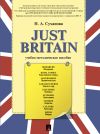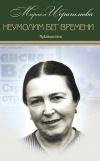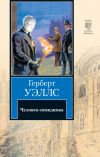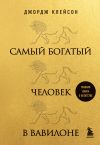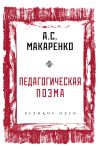Текст книги "Glimpses of Britain. Reader"
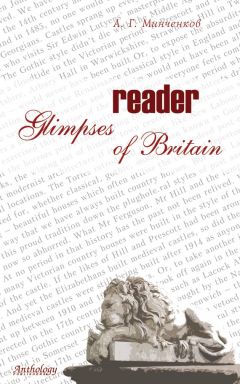
Автор книги: Алексей Минченков
Жанр: Иностранные языки, Наука и Образование
Возрастные ограничения: +12
сообщить о неприемлемом содержимом
Текущая страница: 3 (всего у книги 10 страниц) [доступный отрывок для чтения: 2 страниц]
History washes up ancient bathroom
by Martin Wainwright
The Guardian, May 19, 2005
Five blocks of stone prised out of a castle wall are thought to have revealed what may be the first bathroom built in Britain after the long and grubby interlude of the Middle Ages. Archaeologists are carrying out a preliminary search of two chambers unearthed this week in a long-abandoned outbuilding at Bolsover in Derbyshire, where Sir William Cavendish, a fastidious aristocrat, is known to have started a fashion for “bathing rooms” after the English civil war. Inside the room, a narrow slit running round all four walls shows where flagstones once formed a floor at a level leaving ample room for a sunken bath. The main chamber also has a recess at one end the width of lead piping, which tallies with a similar feature on a well house in the castle garden immediately outside. “It is looking very promising,” said John Burditt of English Heritage, which is gradually restoring the castle – a grandiose mixture of mansion and fortress which dominates the pit village constituency of leftwing Labour MP Denis Skinner. “Another piece of evidence is the smaller second chamber which has blackened stone on one wall,” Mr Burditt said. “The historical record describes how Sir William’s bath could be filled with hot water. This room may well turn out to have been the boiler house.” Sir William’s experiments in hygiene were inspired in part by his exile on the continent, following Oliver Cromwell’s victory. In Europe, washing was generally more sophisticated than in England. But Sir William is also thought to have been keen to help his first wife, Lady Madge, overcome her problems in conceiving. “Immersion in warm water was thought to be a way of treating infertility at the time,” said Mr Burditt. “Cavendish had the resources and room to make this possible on a large scale.” The 17th-century bathing room craze was the first real revival in Britain of the fastidious habits of the Romans, whose elaborate public baths were left in ruins during the Dark Ages. Bolsover’s hidden rooms, which were sealed over a century ago when they fell into disrepair and became structurally dangerous, are likely to go on show after a full archaeological survey this summer. The find, if the bathing theory is confirmed, will add another laurel to Britain’s considerable plumbing heritage, which famously includes the perfector of the modern flush lavatory, Thomas Crapper. The first bathroom to be installed in the US was also the work of a man who knew Bolsover well, the 18th-century Leeds architect Benjamin LaTrobe whose other commissions included collaborative design on the White House.
Letter from Victoria points to affair with Brown
by Stephen Bates
The Guardian, December 16, 2004
A newly discovered letter from Queen Victoria, revealing her innermost feelings for her Highland servant John Brown, reignited speculation yesterday that their relationship was more than platonic. The handwritten note, uncovered by accident by a PhD student in the family archives of Lord Cranbrook, one of Queen Victoria’s ministers, in the Suffolk record office indicates just how distraught she was when Brown died unexpectedly in March 1883. The letter was revealed in an article in History Today magazine by Bendor Grosvenor, its discoverer. It is not the magazine’s first royal scoop – it revealed how the royal doctor hastened the death of George V in 1936 so that it could be announced in the morning papers. Queen Victoria wrote – characteristically in the third person – to Cranbrook two days after the former ghillie’s death: “The Queen has let her pen run on… The Queen is not ill, but terribly shaken and quite unable to walk… missing more than ever her dear faithful friend’s strong arm.” The letter is written in the queen’s nearly indecipherable scrawl on black-bordered note paper and speaks of her “present, unbounded grief for the loss of the best, most devoted of servants and truest and dearest of friends.” Speculation about Queen Victoria’s 20 year relationship with Brown, following the early death of her husband Albert in 1861, started in court circles almost as soon as the unlikely friendship itself did when the queen was in her mid-forties. Victoria’s daughters joked about “Mama’s lover”, and the then Duke of Edinburgh (the queen’s second son) claimed he had been evicted from Buckingham Palace because he refused to shake the servant’s hand. A court source, probably the dean of Windsor, told Lord Derby, foreign secretary, that Brown had taken to sleeping in the room adjoining the queen’s bedroom, “contrary to etiquette and even decency.” The queen’s letter reads: “Perhaps never in history was there so strong and true an attachment, so warm and loving a friendship between the sovereign and servant… Strength of character as well as power of frame – the most fearless uprightness, kindness, sense of justice, honesty, independence and unselfishness combined with a tender, warm heart… made him one of the most remarkable men. The Queen feels that life for the second time is become most trying and sad to bear deprived of all she so needs… the blow has fallen too heavily not to be very heavily felt.” While the letter does not conclusively reveal whether the pair were lovers in the modern sense – the heightened sentiment was not unknown in the queen’s correspondence – it does show a strength of feeling that was disguised when her diaries were edited by her daughter Beatrice after Victoria’s death. Grosvenor believes the friendship was more than platonic. “The similarities between Victoria’s treatment of Albert and Brown in death are too numerous to ignore,” he writes. When the queen died, she left instructions that a lock of Brown’s hair, his photograph, a handkerchief and some letters should be placed in her coffin alongside mementoes of Albert. Any secrets in the letters will presumably remain firmly in the Queen’s mausoleum.
At last contentment
by Cristina Odone
The Observer, April 10, 2005
In the end, it was a sigh of relief rather than the cheer of well-wishers that saw off Charles and Camilla as they left for Northolt and their honeymoon at Balmoral. The lead-up to the wedding had become almost excruciating, a huge, slow-motion social disaster that took place right before our eyes. The final act, though, went off smoothly.
Second time around, Prince Charles had to fight humiliation and adversity all the way to the register office. A dying pontiff may choose to turn his fatal illness into a public Calvary, but it seems a bit harsh that the Prince of Wales should be forced to do the same with his marriage. Yet from the Queen’s no-show to the snide press reports and the public mea culpa about his adultery, the path to Windsor Guildhall was strewn with thorns. Even those who have long branded the heir to the throne a petulant crank must have felt a twinge of sympathy as the mishaps unfolded. The venue was wrong, security a shambles, PR bungled. Even fate conspired against them; the Pope’s death cheated Charles and Camilla of the limelight and his funeral forced them to postpone their big day.
The succession of obstacles offered a bleak commentary on the fraying of the British establishment. The Queen announced she would not be attending the civil marriage, allegedly telling a friend that she felt obliged to put her role as Supreme Governor of the Church of England “before her role as a mother”. Yet the established church for most of her subjects commands far less loyalty and sympathy than motherhood and, to millions, the Queen’s stance seemed more like outdated posturing rather than admirable conviction.
It also reminded us of the fragility of a church whose symbolic head is the monarch: she who must embody all virtues is so plainly human. Forget divine, the Queen strikes us as dysfunctional, a mum whose brood bumbles through life botching their marriages and their work, a wife whose husband regularly embarrasses her. The ambiguity of the Queen as head of the established church becomes all the more pronounced with the thought of Charles inheriting the role. This royal marriage was the first, ever, to be celebrated in a civil rather than a religious ceremony; even Edward VIII and the divorced Mrs Simpson managed to be married in church, by a maverick Anglican clergyman acting in defiance of his bishop. Can Charles, banned as an adulterer from a church wedding, really ever take on the mantle of temporal head of the national church?
The timing of the wedding threw light on another anomaly. As Prince Charles joined Tony Blair, the Archbishop of Canterbury and the Conservative and Liberal Democrat leaders at John Paul II’s funeral in Rome, the provisions of the Act of Succession seemed, more than ever, an anachronistic injustice. Here were the heads of Britain’s establishment paying tribute to the leader of a faith against which, back home, discrimination is still enshrined in 300-year-old legislation.
No one had expected a second, civil royal marriage to bring out more than a hardcore of flag-waving royalists, let alone bring the country to a standstill in the way that Charles’s wedding to Diana Spencer did.
Church bells pealing up and down the land, street parties toasting the newlyweds, and tearful vox pops on the telly wishing the prince and his bride all the happiness in the world: these were the images that in 1981 reassured the monarchy and its supporters that this land was still their land. A very different reception has greeted this union. Reactions to the announcement of the wedding have run the whole negative gamut, from muted to open hostility. Charles and Camilla have had to suffer the slights of outrageous tabloids – the Mirror even pronounced that Charles shouldn’t inherit the throne – and Channel 4’s Not the Royal Wedding, with its grotesque Camilla lookalike caught squawking hysterically.
Even staunch royalists who scan newspapers for royal engagements and will travel miles to catch a glimpse of the Princess Royal cutting a ribbon to open a village hall in Derbyshire are divided: some remain true to the monarchy and queued since the small hours to get right up to the crush barriers, but many still resent Camilla as the “other woman” and hold her responsible for the royal divorce.
For most of us, the atmosphere is not one of rampant republicanism so much as inherent indifference: 15 million viewers may have tuned in yesterday afternoon (and God help those who tuned in earlier, to be subjected to many hours of Piers Morgan) but millions watched the Grand National and cheered Hedgehunter on, or drove to Homebase to choose decking or cruised the aisles at Tesco for the special offers.
As for the foreigners – 500 million of them were expected to watch the ceremony – they will have felt short-changed. The Queen, Windsor Castle, Handel’s Water Music, Princes William and Harry (both looking unexpectedly relaxed, William blowing a kiss in St George’s Chapel): the event bore some of the hallmarks beloved by people who bring back a royal mug from their visit to London and a Peter Rabbit tea cosy from the Lake District.
But the great royal procession, the splendour of St Paul’s and a kiss on the balcony of Buckingham Palace were missing. Britain was not delivering the royal extravaganza foreigners expect of it.
And yet. This second marriage between two long-time lovers feels real in a way that the first Barbara Cartland romance never did. Where Charles and Di struck a note of fairytale magic that soon grew flat, Charles and Camilla offer something altogether more convincing.
This is marriage as give and take rather than happily ever after. Indeed, that there should be a marriage at all, that Charles and Camilla should seek official sanction for their de facto union will strike many as genuinely touching in an era of cynicism and spiralling divorce rates. But then, we know that these two, even after three decades, still want each other. Sexual attraction, even obsession, has hovered over this marriage from the start, a more powerful ghost than the late princess.
Play word association with “Charles” and you quickly get “tampon”. The intimate telephone conversation that we were privy to more than a decade ago revealed the prince and his mistress as lusty, bawdy and in tune with one another.
The only time I met them, at a friend’s wedding, Camilla oozed sexual confidence and wherever she moved in the reception, she drew not only the prince’s gaze but many other men’s. Among the Gloucestershire set, Camilla is known as a “bit of all right” – earthy, fun and just what the doctor ordered.
Perhaps it is Camilla’s earthiness, coupled with the very ordinary stumbling blocks that she and Charles have had to overcome en route – down to the disapproving mother-in-law, the glitch in the arrangements, and the sudden death that precipitated a rescheduling – that ultimately won us over. In the event, the mellow, piano mood of this latest royal wedding suited Britons.
It was in a way an apt image for the country itself. No one would be fooled now by a high-voltage show of grandeur or claims of greatness. Here, instead, was a mature and thoughtful recognition of limitations and past wrongs, of compromise but also – dare we say it? – contentment.
Wedded to a Quango Lords
by Andrew Adonis
The Guardian, May 19, 2005
The least sentimental of Tories, Salisbury would have approved of Tony Blair’s current plan for House of Lords reform. He himself tried to introduce appointed life peers in the 1880s, 70 years before Harold Macmillan carried through the reform.
Salisbury would have seen Blair’s removal of the hereditary peers – leaving a house of prime ministerial patronage – as an excellent Tory reform. Lords and ladies will flourish. Patronage will abound. And in an ironic inversion of former Tory beliefs in a strong aristocractic house, the continuation of what is now an extremely weak second chamber will uphold, in today’s conditions, a central plank of Salisbury’s statecraft: his determination to ensure that government remained as unaccountable to the people as possible in a “democracy”.
It is less evident, however, why the left should be happy with the proposal. If history says anything, it is that the first Lords reform is likely to be the last for a long while. The 1911 Parliament Act, which curbed the Lords’ powers, included a pledge to replace the hereditary chamber with an elected one. Ninety years later, we are still waiting. If we want an elected second chamber there is no reason why a combined Lab-Lib majority of 301 over the Tories in the Commons cannot create it in one go.
Yet ministers remain wedded to a quango Lords. Most Labour and Liberal Democrat life peers are enthusiastic, of course. No one likes being abolished, particularly when the perks of existence are as pleasant as those of a peer of the realm. And no government relishes parliamentary independence, whatever its members said in opposition.
A stronger second chamber, with the legitimacy that could only come from elections, is desirable. The weakness of the Westminster system is the extreme subordination of the legislature to the executive. No conceivable reform of the Commons would do much to reduce it, since governments in Britain exist only by virtue of their control of the Commons.
An elected second chamber is needed to provide a necessary measure of parliamentary independence. And it could easily be established, without duplicating the Commons, by having it elected by proportional representation on a different time cycle. Even if both chambers were ultimately elected by PR, the use of different PR systems and election dates would provide a varying balance of forces. As for the potential for conflict, provided the Commons retains sole power over national taxation, and an ability to enact other legislation on its own authority after a delaying period, there is no reason to fear gridlock.
Could we get an elected second chamber in one leap? Just possibly, if the Tories wake up. As a party, they can only gain from a radical reform now that the hereditary peers are doomed. It all depends whether William Hague is a disciple of Salisbury or his arch-enemy Disraeli. The great marquess never sold the pass on such an issue of principle, the great adventurer couldn’t resist dishing the Whigs by out-democratising them. Hague looks more like Disraeli to me, so watch this space.
Royals in crisis as popularity nose-dives
by Ben Summerskill
The Observer, December 29, 2002
The Golden Jubilee celebrations were the most carefully choreographed piece of royal theatre since Queen Victoria’s Diamond Jubilee in 1897. Years of planning by hundreds of courtiers went into commemorating the fiftieth anniversary of Queen Elizabeth II’s accession.
But as the Queen marks the new year quietly at Sandringham this week, she will be desperately disappointed to find that public opinion has hardened against the monarchy during the past 12 months.
An exclusive Observer poll has found that two in five of her subjects think that 2002 was a good year for the monarchy as an institution. However, almost exactly the same number think the opposite. And many members of the royal family are now regarded as less hard-working and less in touch with ordinary people than ever before.
The year 2002 has been one of the Queen’s busiest years on record: she carried out more than 500 public engagements and visited every region of the country. The monarch herself is still regarded as hardworking by three in four of her subjects and as a “good ambassador for Britain” by 85 per cent, according to the YouGov poll of more than 2,000 people.
But only one in two of us now believe that the monarchy will last more than 20 years, down from 58 per cent in just 12 months. And one in four think the monarchy will not survive more than 10 years after the death of the Queen, now 76.
The number of people who think that the royal family should receive not a penny from the taxpayer has also soared in the last year, from 34 per cent to 41 per cent. Just one in 10 now thinks they should receive more than Ј20 million a year. This is less than half the current, highly complicated package of cash payments, allowances and concessions, such as inheritance tax exemption, that they receive from the public purse.
The first six months of 2002 were regarded by many as a triumph for royal imagemakers. The deaths of Princess Margaret and then the Queen Mother distracted attention from the Golden Jubilee preparations, but raised much sympathy for the Queen and enabled her to preside over the pageantry of two royal funerals, carried out with the impressive precision which the Windsors regard as their trademark.
The second half of the year began less well, with a scathing report by the House of Commons public accounts committee into the financial concessions provided to minor members of the royal family. Things went from bad to worse when the theft trial of royal butler Paul Burrell collapsed in October, after the Queen suddenly recalled Burrell had said to her that he would keep personal effects of the late Princess Diana which he was accused of stealing.
“The Golden Jubilee was undoubtedly overshadowed by the royal butler scandals,” said veteran royal commentator Robert Lacey. “People’s whole reaction to the royal family is an emotional one. The issue of passing on or destroying gifts which emerged from the trials is terribly important because they are a token of people’s affection. It’s not surprising that this has all left a sour taste in the public mind.”
The poll comes as analysis of the last year’s Court Circular shows some members of the royal family striving to cast off their reputations for laziness. The Earl and Countess of Wessex have worked harder than ever before, carrying out more than 350 engagements each.
However, Prince Edward, who is famously sensitive, will be aghast to find that just one in 10 people considers him hardworking, down from 21 per cent 12 months ago. Only 7 per cent think the Queen’s youngest child, who has already failed in his chosen careers as a royal marine and a TV producer, is in touch with the concerns of everyday life in Britain today.
“What becomes increasingly apparent,” said Labour MP Alan Williams, a senior member of the Public Accounts Committee, “is that the mythology of the royals has become damaged by their attitudes in financial areas. When I first raised questions about the cost of the royal yacht many years ago, we were fobbed off with the untrue claim that it was a hospital ship.
“The younger generation in particular have started to look at the non-productive lives that these people lead. They compare them unfavourably with the circumstances they encounter in the real world.”
The poll confirms that young people are considerably less sympathetic to the royal family than their grandparents. While one in four over-50s thinks the Queen should pay inheritance tax, the figure rises to to almost one in two among the under-29s.
The poll also suggests, surprisingly, that many people in the DE social categories, often regarded as the stalwarts of British monarchism, are less sympathetic to the royal family than their more affluent counterparts.
After a year in which their entitlement to free accommodation was questioned by MPs, some minor members of the royal family – in particular the Queen’s cousins, the Dukes of Gloucester and Kent – have worked as hard or harder than in the past, in spite of being at or beyond retirement age.
The only royals who have no engagements listed on the Court Circular for the last 12 months are Prince and Princess Michael of Kent. The Queen has just agreed to divert Ј120,000 a year from her civil list allowance to pay rent for their lavish apartment in Kensington Palace, for which they were paying a fixed Ј69-a-week until MPs protested earlier this year.
And even though the total number of visits carried out by some members of the royal family has risen, many still work on fewer than one in two days over the year as a whole.
Having arrived at Sandringham shortly before Christmas, the Queen and Prince Philip are not expected to leave until after the anniversary of her father’s death there, on 6 February, as is her custom.
“Part of what we are dealing with here is human chemistry,” said Lacey. “If Edward and Sophie were more likeable, their worth might be more realistically recognised. I’m sure that the moment Sophie becomes successfully pregnant we will see people warm to her emotionally. It’s irrational, but that’s so often the case where the appeal of the royal family is concerned.
“At the end of the day the Queen and all members of her family will have to pay inheritance tax just like everyone else. Their exemption is all to do with their anxieties about losing Sandringham and Balmoral as private resorts.
“They are entitled to have these reserves into which they can retreat, like any other endangered species, but they should be handled through a family trust, not a tax exemption.”



